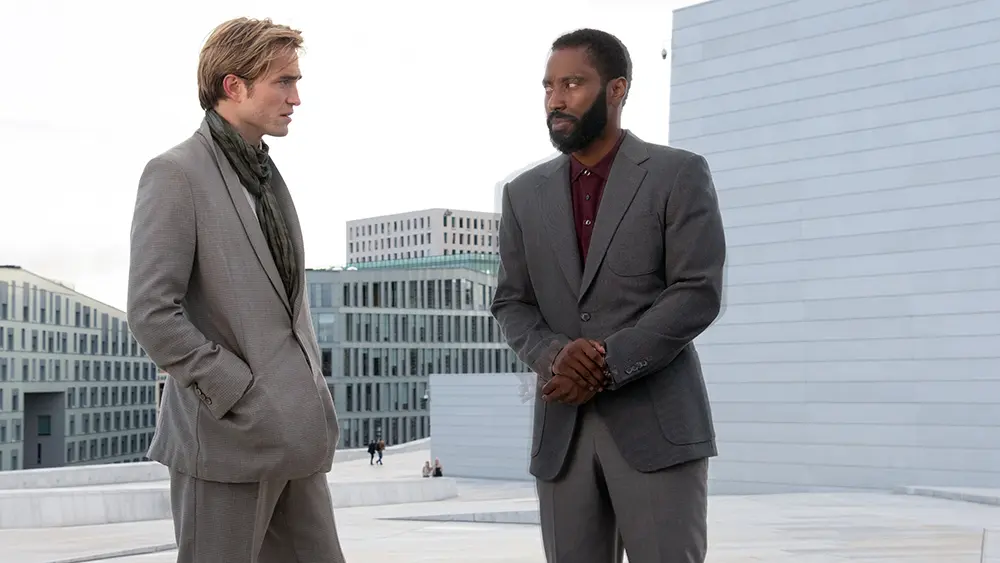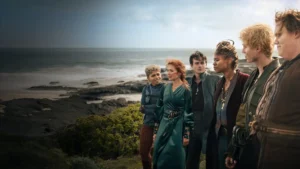In any other time, Tenet would have been a Summer blockbuster of a movie that would have lit up the box office and opened the gates to a flood of debate about the film’s success, or lack of, but unfortunately, Tenet may not have been viewed by as many people as they would have hoped, which is a shame as it is really a huge cinematic accomplishment. But that doesn’t make it a great movie.
Tenet, for me, failed on several levels, and upon leaving the theatre I had very mixed emotions, culminating in the first big problem: I felt stupid.
We all know Christopher Nolan loves a high-concept pitch; we have watched him through his magnificent career producing some of the best films of all time. But Tenet takes its concept and wraps a bad film all around it.
The trailer shows the main idea right off the bat, I’m pretty sure you all know about the time inversion by now, but Tenet never really feels like the sci-fi film it purports to be. We are told vaguely about a future timeline that is sending inverted devices back to our timeline, in the hope that Kenneth Branagh can destroy our world to save their future one, but come on now, be honest, did you all pick that up in a single viewing?
If you did, well done, but if like me you had to Google the plot of Tenet when you got home, you have two questions to ask: 1) Am I stupid and 2) Does Tenet do a bad job of telling a story?
Now perhaps I was distracted by the set pieces, and the plot went over my head, and perhaps I did miss a lot of exposition as I tried to figure out how tall Elizabeth Debicki is, but can it be argued that Tenet just didn’t convey what was happening clearly enough to the average cinema-goer? I would say yes, it fails as a blockbuster sci-fi spy thriller, as it almost seems embarrassed by the fact that this is what it was meant to be.

It seems that Nolan wanted to make a real representation of how this type of plot would work, so we are graced with very serious situations, filled with stoic and unfettered characters, realistically wading through their storylines, but it still never feels like a sci-fi film. If there is a future timeline where the world is at risk of destroying itself, we never see it, and therefore we never care about it. With the audience so removed from the action, the stakes, that should have been so high, are instead replaced by the real heart of the story: will Kat manage to escape from the abusive Andrei Sator and be reunited with her son? To be honest, I really never cared about the end of the world.
On top of that, Ken’s outrageous accent began to grind on me, perhaps it was not a great bit of casting, and despite John David Washington giving an excellent performance, I felt I never really knew the man or his name. Pattinson is fine, but it was all very safe for him, and once again Debicki thankfully became the lynchpin of the movie, keeping me invested.
Finally, the action sequences with the inverted time device were just confusing. I know that it probably made sense to all involved with the production of the sequences, but some of it just looked silly, like the fight scene where it looked like they were just oddly avoiding each other.
As an experiment, Tenet sadly left me cold. I don’t think I’m stupid, but I felt it as I left, and if the overall idea is that I should go again to see it, or buy it on Blu-ray and watch it again, or check out a forum so I can see what I missed, then the filmmakers have failed in their jobs.
Surely a film of this scope should be accessible and engaging on initial viewing, and perhaps many people will rave about the complexity of the concept because, well, it’s Chris Nolan isn’t it? But Tenet is almost deliberately obscure and dense, leaving a high percentage of viewers scratching their heads, and for filmmakers at this level, that is a failure.




